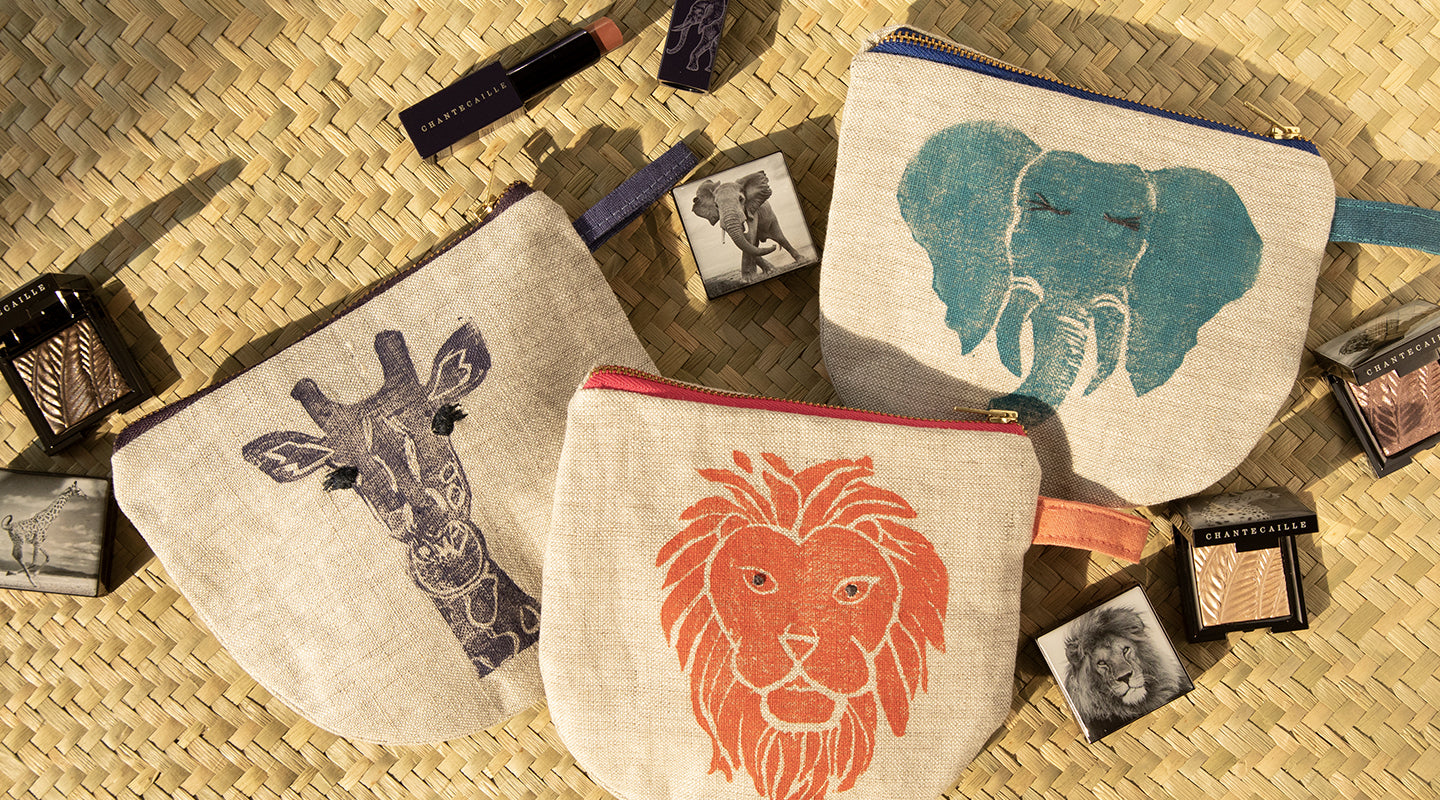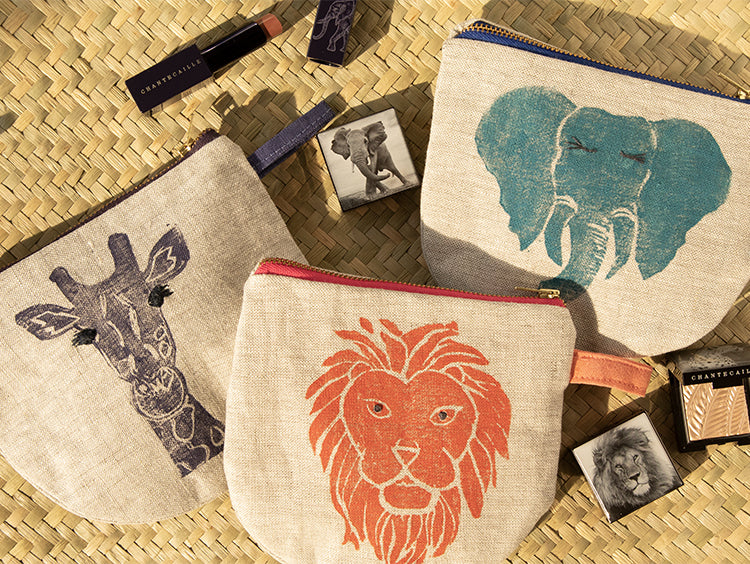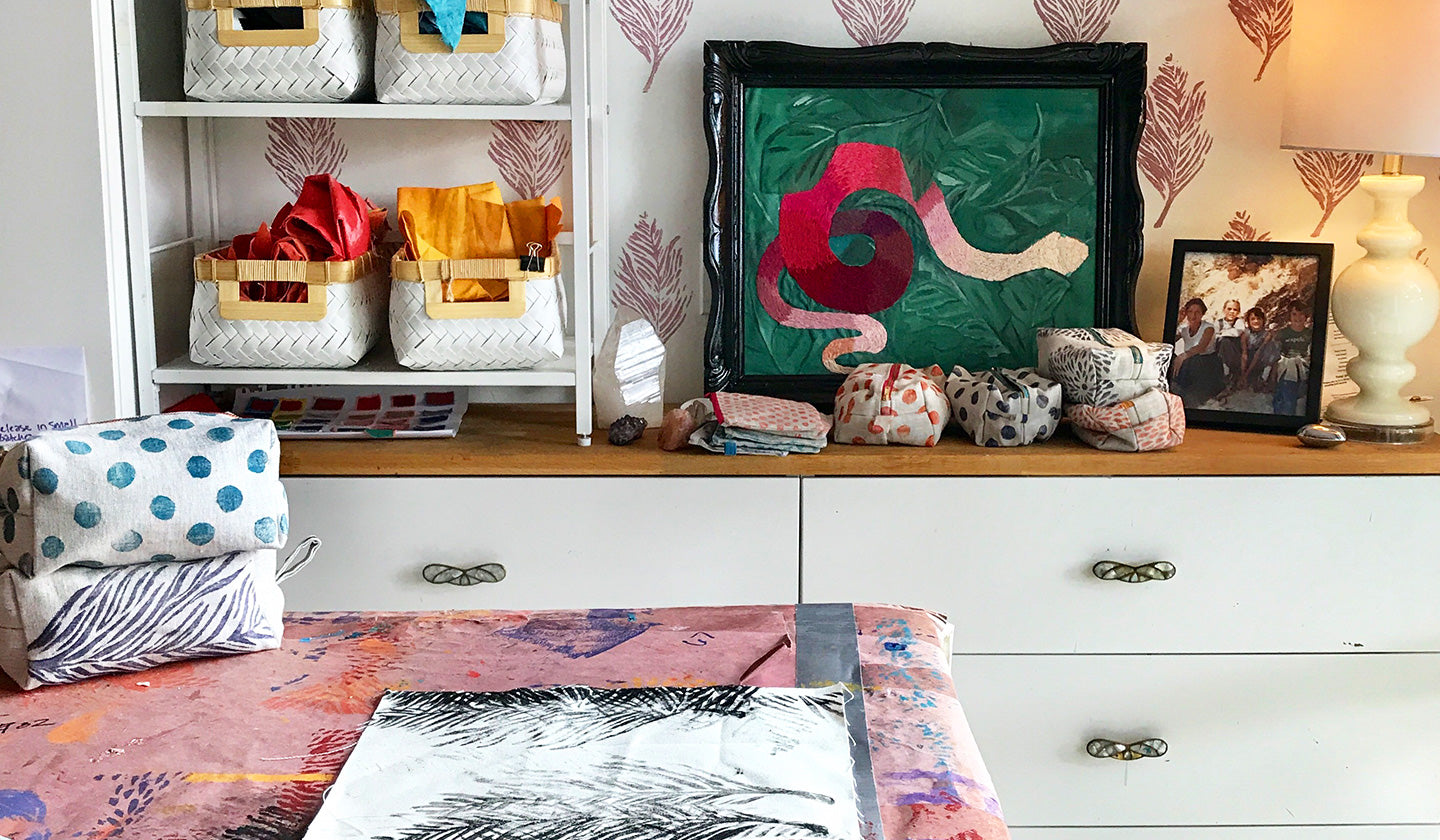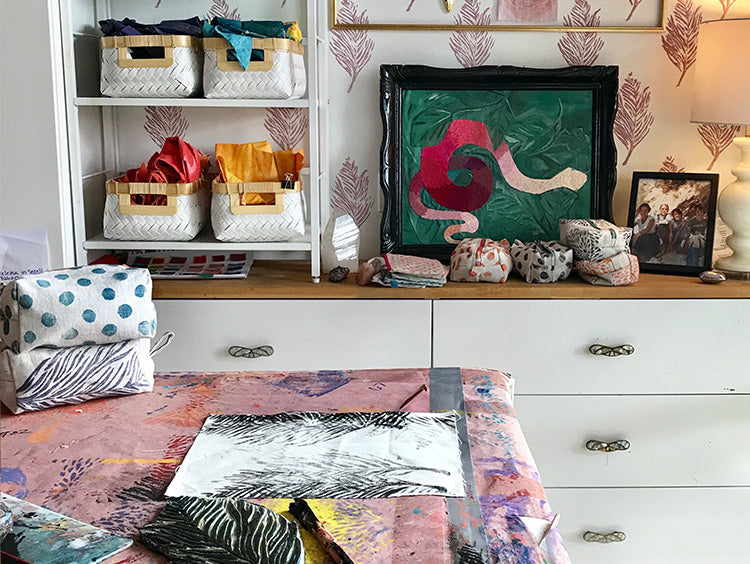Take The Wild With You
Our exclusive collaboration with home goods artisan and Tulusa founder Sue Henry gives back to three of the wildlife charities featured in our Vanishing Species collection.

Sue Henry
Sue Henry used to create installation sculptures—“life-size figurative work and architectural stuff”—when she lived and worked as an artist in California in her twenties. But after moving to Colorado and eventually the outskirts of Washington, D.C., in 2001, “the spaces got smaller and my work did too,” she says. Her eastward drift prompted a shift to more manageable ceramic dinnerware, home goods, and eventually textiles like hand block-printed pillows, table linens and embroidered bags and clutches. Three years ago, Henry founded Tulusa—“my husband I and came up with it on vacation in Tulum 20 years ago when we were googly-eyed and dreaming of baby names”—in a light-filled studio next to her Alexandria, Virginia home, where the couple live with their two boys, ages 14 and 12.
Fast forward to last February, when Alex Chantecaille was lured into Henry’s booth at Shoppe Object, a curated trade show for makers and artisans, by an embroidered cheetah pillow. The encounter led them to partner on a limited-edition collection of block-printed linen animal pouches, which came to include a lion, elephant and giraffe—perfectly timed to launch with Chantecaille’s Africa’s Vanishing Species Collection. A portion of proceeds from the bags, ideally suited to small cosmetics or as a summer clutch, will support the wildlife charities that correspond with each species.
Henry's studio
"It's fun to have a surprise every time you open one—you don't know what you're going to get."

Stitching a lion pouch
Henry produces all her products “stem to stern,” and block-prints her patterns in-house using linoleum molds she’s been carving for years, inspired by her extensive travels in India. To create 500 of the bags—fast—Henry, accustomed to doing all of her own sewing, hired a stitcher, and between them “cut thousands of pieces of fabric by hand.” The outside of the pouch is block-printed with a lion, giraffe, or elephant. Henry’s sister, a museum event-planner, hand-embroidered the eyes in her free time. (For extra hands, Henry also relies on the sisterhood of her Del Ray neighborhood’s burgeoning community of women makers, who help each other get their seedling businesses off the ground.)
The pouches are lined with over-dyed, up-cycled linen that’s block-printed with abstract patterns, and the pockets are recycled from compression bags full of fabric that had been sitting in Henry’s studio, awaiting a new life. “Each one is different. It's fun to have a surprise every time you open one—you don't know what you're going to get,” she says.
Tulusa is growing quickly—she's expanding the collection through throw pillows, bedroom pillows, table linens, and of course pouches—so that, like so many budding entrepreneurs, she realizes she needs a business plan. “I went to art school and they don't teach you those things,” says Henry. “I always just shoot from the hip, but I’m learning every day. Last year I hired a bookkeeper, which was the best thing ever.” Good thing her spirit animal is the tiger: “It’s all about owning your power.”





